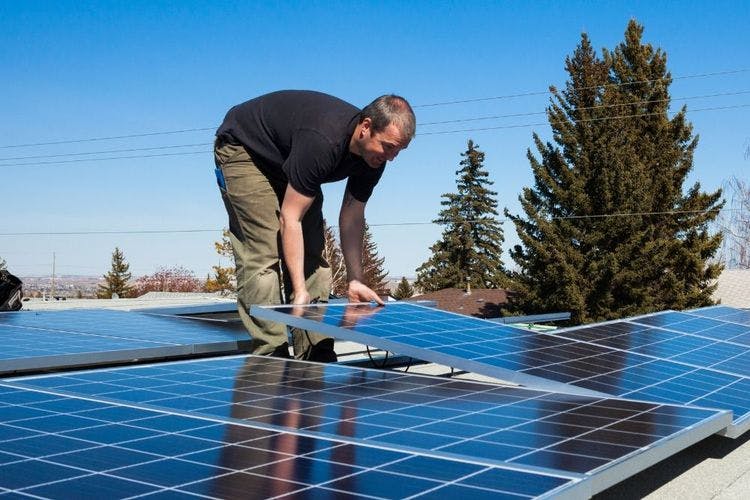Solar energy is becoming increasingly commonplace in the UK, with one in every 25 buildings making use of solar technology to power them.
As of 2023, 14.4 GW of solar power has been installed around the UK with a third of it being rooftop solar. The government had stated plans to increase solar energy usage by fivefold by 2035, going up to a capacity of 70GW from 14GW at present.
The popularity of solar panels in households has also skyrocketed—primarily because they help residents save on energy bills, reduce their reliance on grid power, contribute to a healthier and more sustainable environment as well as being a result of the initiatives laid out by the government to incentivise solar energy usage.
Initiatives like the Smart Export Guarantee (SEG) allowing residents to earn money by selling excess solar energy back to the grid, the ECO4 (Energy Company Obligation Scheme) allowing low-income households to get funding for solar energy installations, and VAT on solar products being reduced to 0% until March 2027 have contributed to the meteoric rise of solar energy in the UK.
Now, to this end, the government has also announced plans to simplify the process of installing solar panels on listed buildings.
1. Understanding the barriers behind solar energy installations
A recent report done by the government itself, consisting of the Departments for Energy Security, Net Zero, Levelling Up, Housing and Communities, and Culture, Media and Sport revealed that the rules and regulations surrounding solar installations on historic buildings were overly complex and restrictive.
To combat these barriers, the government is currently planning to implement simpler measures for solar energy installations with clearer guidelines. This includes clarifying which energy efficiency measures require planning permission or listed building consent.
Additional consultation will follow, studying the potential for Local Listed Building Consent Orders to enable certain upgrades which include solar panels.
The government has also established a set of measures to support energy efficiency upgrades including grant schemes and social housing improvement initiatives.
2. What does the future hold?
These initiatives are expected to further increase the accessibility of energy efficiency improvements and address issues of retrofitting costs that hold back many from enjoying these improvements.
The solar energy industry in particular has received these developments with open arms as they address the barriers of bureaucracy surrounding solar panel installations and other energy upgrades for older buildings.
The move is also expected to make both home and business owners simultaneously become sustainable energy users and energy producers, contributing to the country’s overall power supply and sustainability goals.
3. Looking to invest in solar energy? Now is the time!
With the government taking a more brazen stance on developing renewable energy as a viable alternative for energy generation and incentivising the public across the board in both residential and commercial avenues, now is the time to invest in solar energy.
If you are interested in finding a reliable solar energy installer in your area, join Solar Save Club. We will help you assess your solar needs and recommend a reliable installer who will get your project done in no time. Click here to get started.

